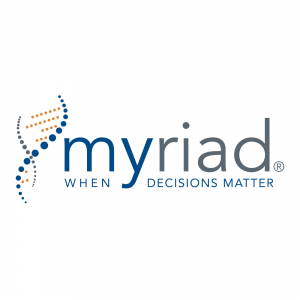
A Mission to Save Lives
Hereditary Cancer Support was created with the goal of making it simpler for patients and their families to receive genetic testing for hereditary cancer syndromes. Because when it comes to potentially life-saving information, you have a right to know.
We’ve partnered our patient care team with experienced doctors and genetic counselors to help guide you through the genetic testing process.

Our Testing Partner
We’ve proudly partnered with Myriad Genetics to make genetic testing easier and more accessible for everyone. To date, Myriad’s hereditary cancer tests have benefited more than 1.5 million patients.
For over 25 years, Myriad has led the way in genomics, molecular diagnostics, and the development of innovative products that transform patients’ lives. In 1996, Myriad introduced the first molecular diagnostic test for hereditary breast and ovarian cancer (HBOC).
Together, we’re committed to helping patients get the information they need to make better health decisions.
Frequently Asked Questions
The process is simple and easy. You will provide a small sample of saliva at a doctor’s office. Then, the sample is sent directly to Myriad Genetic Laboratories to be processed. You can choose to receive your results from your own doctor, a doctor in our trusted network, or from an experienced genetic counselor.
- Which genetic tests may or may not be right for you, and what those tests may or may not tell
- How you or your family is affected by an inherited disease and condition
- How family and medical histories may impact your chance of disease occurrence or recurrence
- How to make the most informed choices about your health with regard to hereditary cancer
Only you and your healthcare provider will be able to see the results you receive from your genetic test. Any personal or family information you provide, and any information gained from the tests you take, cannot be shared without your permission.
No. A genetic test can only tell you if you carry the gene mutation that can increase your risk of developing certain types of cancer.
Knowing your risk can help you and your doctor take action for risk-reduction and treatment. If you do have a gene mutation, you can take steps including:
- Starting cancer screenings at an earlier ag
- Choosing to take risk-reducing medications, or have preventive surgery
- Reducing the risk for a second cancer if you have already had one type
- Educating family members about their potential risks and need for testing


